Jeremy Fletcher: In the Name of Healing
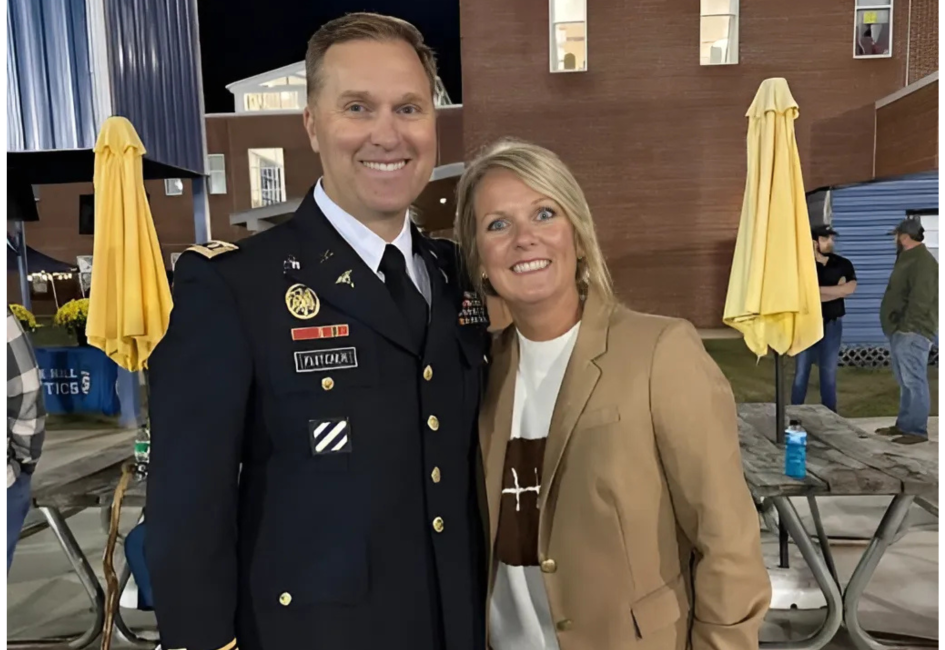

Jeremy Fletcher spent a lifetime performing at high levels—showing up in the classroom, on the field, and eventually, in uniform. Long before he treated wounded soldiers on the front lines or taught trauma-informed care to future clinicians, he was simply surviving. He learned to outrun the turmoil that lived just beneath the surface.
His mother, gripped by alcohol addiction, died by suicide when Jeremy was just nineteen. His formative years were shaped by instability, tiptoeing through tension and trying to stay upright in a home that never stopped shaking.
The person who steadied him was his grandfather.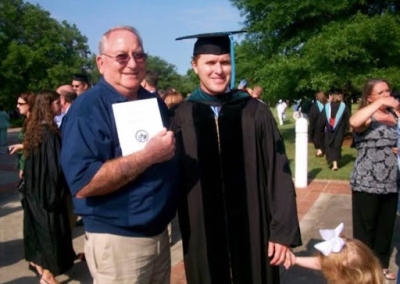 Eugene Wilford Cummings wasn’t just a caretaker. He was Jeremy’s anchor. Quiet, thoughtful, and fiercely loyal, he brought calm to a home that desperately needed it. Jeremy absorbed everything—the way “Paw-Paw” Eugene carried pain without complaint, the way he led without fanfare.
Eugene Wilford Cummings wasn’t just a caretaker. He was Jeremy’s anchor. Quiet, thoughtful, and fiercely loyal, he brought calm to a home that desperately needed it. Jeremy absorbed everything—the way “Paw-Paw” Eugene carried pain without complaint, the way he led without fanfare.
Jeremy poured that same quiet intensity into baseball, then into teaching and coaching, and eventually into marriage and fatherhood. When his oldest daughter was diagnosed with autism, Jeremy and his wife, both teachers, realized they needed a new path. One that offered financial stability and purpose.
The military offered both.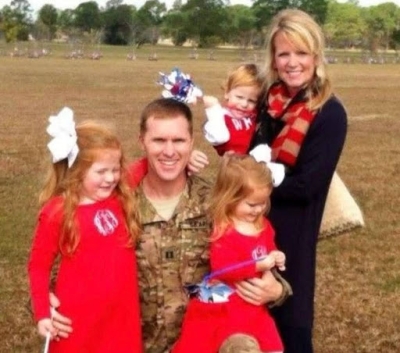 Jeremy joined the Army Reserve as a medic shortly after graduating from college in 2002. It was a practical decision, but it quickly became something more. The discipline, the camaraderie, and the clarity of mission all resonated with him. In 2010, he went on active duty. By 2013, he was deployed to Afghanistan.
Jeremy joined the Army Reserve as a medic shortly after graduating from college in 2002. It was a practical decision, but it quickly became something more. The discipline, the camaraderie, and the clarity of mission all resonated with him. In 2010, he went on active duty. By 2013, he was deployed to Afghanistan.
Stationed at Forward Operating Base Shank, Jeremy flew to remote combat outposts to care for soldiers. He was often the only physical therapist they had seen in months. Using manual therapy and sports medicine techniques, he treated non-battle injuries that didn’t make headlines but could sideline a soldier just the same.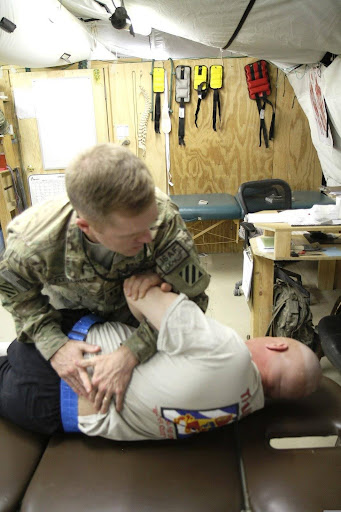
He loved the work and the mission, and it felt like the culmination of everything he’d worked toward.
Then came the news from home.
His grandfather, Eugene, was dying of stomach cancer. Jeremy flew back just in time. Eugene stood to greet him, one final act of presence and strength. It was the last time he stood, the last time he smiled, and the last time Jeremy held him. He passed away the next day.
Jeremy never made it to the funeral. He returned to Afghanistan and tried to press on, but something had shifted. The grief he had tucked away joined the other unspoken wounds he’d carried since childhood. He began to see that same pain mirrored in the soldiers around him—the exhaustion, the hopelessness, the invisible weight they carried. He kept showing up, but the foundation beneath him had cracked.
Back home in 2015, a simple prednisone prescription for a sinus infection triggered a spiral of anxiety that left him reeling. He reached out to a friend and sought help. But what the system offered—medication and surface-level fixes—felt like addressing symptoms instead of causes. His body was waving the white flag. And the pain he had long buried was finally demanding to be seen.
That’s when he saw a social media post from Camille Effler, a fellow veteran, about a program at Boulder Crest.
“I remember sitting in my office looking out the window and thinking, ‘I can’t take this into my kids’ lives. I need to get through this,’” Jeremy said. “Seeing Camille’s post was exactly what I needed, exactly when I needed it.”
He reached out. Boulder Crest got him enrolled in Warrior PATHH, and in that sacred space, something clicked.
“The week I spent in Warrior PATHH changed my life,” he said.
“To have the phrase ‘Posttraumatic Growth’ is helpful for people,” Jeremy explained. “Everyone has the capacity and ability to move forward if they choose. The medical system tells you what’s wrong with you, but what they give you is only going to treat a symptom.”
The belief that healing is possible—and that growth is a choice—reshaped everything.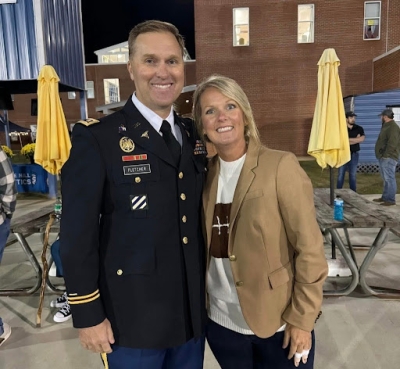 Today, Jeremy lives in Mobile, Alabama, with his wife and three children. He works in an outpatient VA clinic, integrating mental health into physical therapy. His practice is rooted in trauma-informed care and a strengths-based approach. He sees the whole person, not just the injury. He teaches students and other practitioners how to treat pain with compassion and to listen closely for what isn’t being said.
Today, Jeremy lives in Mobile, Alabama, with his wife and three children. He works in an outpatient VA clinic, integrating mental health into physical therapy. His practice is rooted in trauma-informed care and a strengths-based approach. He sees the whole person, not just the injury. He teaches students and other practitioners how to treat pain with compassion and to listen closely for what isn’t being said.
Many of his patients come to him expecting a traditional physical therapist, someone to help them move better or reduce pain. What they don’t expect is someone who also sees the distress behind the discomfort. “I meet people right where their expectations are,” Jeremy said, “and then I’m able to bridge that into all of these other difficulties they’re having.”
Through lived experience and clinical insight, Jeremy helps veterans explore how stress, trauma, and unspoken grief show up physically and how healing goes beyond mobility. He builds relationships rooted in trust and sees those moments of connection as catalysts for growth. “I get to build these genuine relationships with these amazingly resilient human beings,” he said. “They’ve gone through stuff you couldn’t fathom, but they did it—and they’re still thriving today.”
It’s Posttraumatic Growth in action, scaled into every session. Informed by Warrior PATHH and shaped by a life of overcoming, Jeremy helps others move forward in more ways than one.
In short, he practices what he learned at Boulder Crest.
“The brain has the capacity to heal,” he said. “We have to recognize we have a choice in the process. What am I going to do with these thoughts? How do I move forward with values as a compass? The more you try to get out of pain, the worse it is. It’s like a Chinese finger trap. Stay calm, and you can pull out of it.”
His approach isn’t just transforming lives. It’s breaking generational patterns.
His oldest daughter is thriving. His middle child lights up for ballet, cheerleading, and is a natural leader. And his youngest, William Ford—named after Eugene Wilford—carries more than just his great-grandfather’s name. He carries a legacy of perseverance, quiet strength, and the belief that pain doesn’t have to be passed down.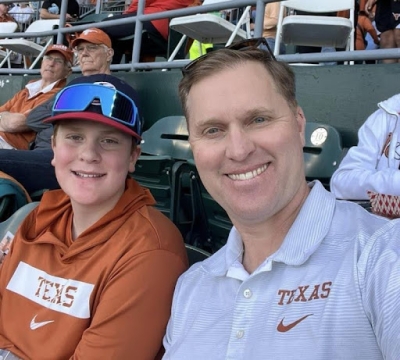 For Jeremy Fletcher, it’s about more than carrying a name. It’s about turning pain into purpose and passing down something stronger—all in the name of healing.
For Jeremy Fletcher, it’s about more than carrying a name. It’s about turning pain into purpose and passing down something stronger—all in the name of healing.
Your support powers life-changing programs offered at no charge to veterans, military, first responders, and their families. With your help, our Warriors won't just survive — they'll thrive.

We have received your email sign-up. Please tell us more about yourself.